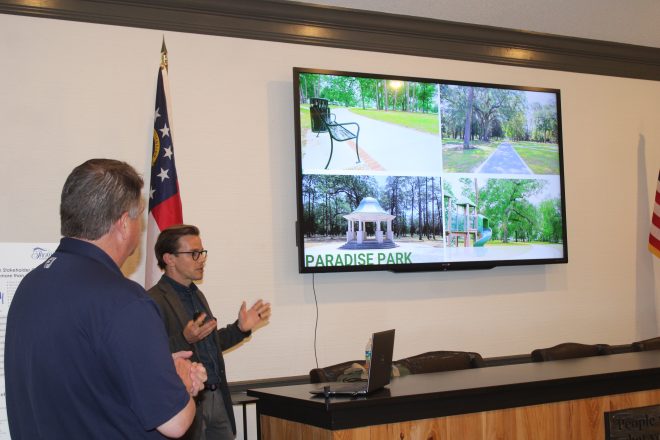Archbold Memorial Hospital urges diabetes awareness
Published 10:29 am Wednesday, November 15, 2017
Diabetes is a demanding disease. And living with it isn’t always easy.
Checking blood sugar, taking medication, watching what you eat and other diabetes-related tasks can sap your energy. Worry and frustration over things like glucose numbers or complications may take an emotional toll.
The American Diabetes Association (ADA) estimates that 9.3 percent of Americans are living with diabetes. Further, the ADA estimates 86 million people over the age of 20 are pre-diabetic. Comparatively, 14.3 percent of Georgia’s population has diabetes and 14 percent of Thomas County’s population has diabetes.
According to the National Institutes of Health, one-third of adults with diabetes still don’t know they have it. Common symptoms of diabetes include frequent urination, feeling very thirsty, extreme fatigue, feeling very hungry even though you are eating, blurry vision, cuts and bruises are slow to heal, weight loss, and tingling, pain or numbness sin the hands and feet.
Diabetes is a disease that occurs when your blood glucose, or blood sugar, is too high. Blood glucose comes from the food you eat, and is your main source of energy. Insulin, a hormone made by the pancreas, helps glucose get into your cells to be used for energy. When the body doesn’t make enough — or any — insulin or doesn’t use the insulin well, the glucose stays in your blood and doesn’t reach your cells.
“All of the stress that comes with managing diabetes can sometimes lead to what’s often called diabetes distress or burnout,” said Dale Wing, MD, physician at Archbold Memorial Hospital.
Of course, everyone with diabetes has a bad day now and then. But burnout is being overwhelmed, and it could put one’s health at risk. People who experience burnout tend to start skipping blood sugar checks or stop taking medications.
For those that are overwhelmed by diabetes, it’s essential to get help and take steps to feel better. The American Association of Diabetes Educators suggests telling your doctor, nurse or diabetes educator how you’re feeling. They can help determine if you have diabetes distress or burnout, and they can help you pinpoint its causes and offer ways for you to cope. It may help to talk to someone else who has diabetes and is going through the same thing.
“Archbold offers a Diabetes Support Group that meets every third Thursday of the month,” said Archbold diabetes educator Sharon Simmons, RN, MSN, CMSRN. “The group is designed to help patients learn to manage their diabetes diagnoses. Participants will learn about their diagnosis, tips on how to manage diabetes by adapting healthy lifestyle changes, and they will benefit from group discussion and support.”
If you are experiencing common symptoms associated with diabetes, Simmons recommends scheduling an appointment with a primary care physician to see if you’re at risk for the disease. For more information on the Archbold Diabetes Support Group, call (229) 228-2706.





